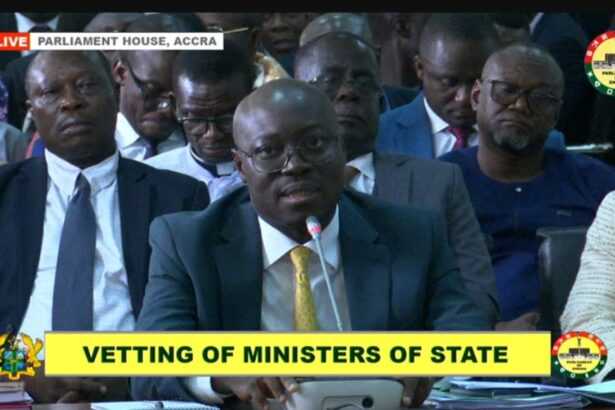The nominee for Finance Minister, Dr. Cassiel Ato Forson, has expressed significant reservations regarding the tax exemption policies implemented by the previous New Patriotic Party (NPP) government. During his vetting before Parliament’s Appointments Committee, Dr. Forson argued that these exemptions disproportionately benefited certain companies, creating an uneven playing field and undermining the overall fairness of the tax system. He characterized these exemptions as discriminatory and lacking proper targeting, leading to a situation where substantial tax revenues are foregone for select businesses while the tax burden on others is increased to compensate. This, he asserted, contradicts the principle of equitable taxation where all entities contributing to the economy should bear a fair share of the tax burden.
Dr. Forson’s primary concern revolves around the lack of transparency in the application of these tax exemptions, particularly those related to the One District One Factory (1D1F) initiative. He questioned the rationale behind granting exemptions to specific companies within the 1D1F program while excluding others engaged in similar activities. This selective approach, he argued, fosters an environment of unfair competition and potentially breeds cronyism, where certain businesses are privileged over others due to non-transparent selection criteria. He stressed that tax exemptions should be applied uniformly and based on clear, objective criteria accessible to all eligible businesses. This would ensure fairness, promote competition, and prevent the perception of favoritism.
To address this issue and ensure a more equitable system, Dr. Forson proposed a legislative solution. He suggested that any future tax exemptions, especially those related to programs like 1D1F, should be governed by specific legislation. This legislative framework would establish clear guidelines and eligibility criteria for tax exemptions, ensuring transparency and equal opportunity for all businesses. By codifying the exemption process, the government can avoid arbitrary decisions and ensure that all qualifying businesses benefit from the incentives, fostering a level playing field and promoting broader economic participation.
Furthermore, Dr. Forson emphasized the importance of tax exemptions as a significant component of fiscal policy. He noted that while tax exemptions can serve as valuable tools for stimulating economic activity and attracting investment, their application must be carefully managed to prevent revenue leakage and ensure they achieve their intended purpose. The current system, he argued, lacks the necessary oversight and transparency, leading to potentially significant revenue losses and fostering an environment of unfair competition. By enacting legislation and establishing clear criteria, the government can maximize the benefits of tax exemptions while minimizing their potential downsides.
The proposed legislative approach would not only enhance transparency but also strengthen accountability. By clearly defining the criteria for tax exemptions and establishing a transparent application process, the government can be held accountable for its decisions. This would prevent arbitrary grants of exemptions and ensure that the incentives are used to promote genuine economic development rather than serving vested interests. Legislative oversight would also allow for regular review and evaluation of the effectiveness of tax exemptions, enabling adjustments to be made as needed to ensure they continue to serve the intended purpose.
In essence, Dr. Forson’s critique of the existing tax exemption system highlights the need for greater transparency, fairness, and accountability. He argues that the current system’s lack of clear guidelines and objective criteria creates an environment ripe for potential abuse and undermines the principle of equitable taxation. By enacting legislation to govern tax exemptions, the government can ensure that these incentives are used strategically to promote economic growth and development while upholding the principles of fairness and transparency. This, in turn, would foster a more competitive and inclusive business environment, benefiting the broader economy and ensuring a level playing field for all participants.














